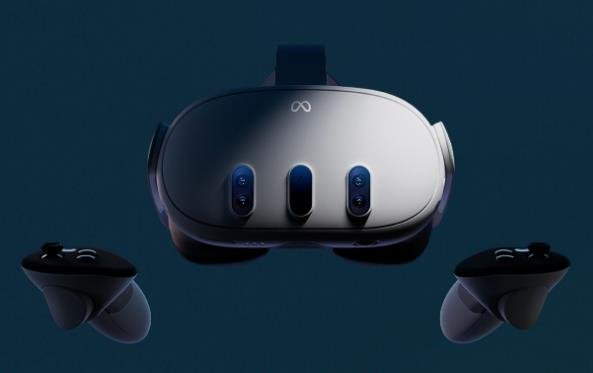The Meta Quest 3, the upcoming virtual reality headset from Meta, is expected to be unveiled at the company’s Connect event on September 27. However, some details about the device have already been leaked online, revealing its impressive depth mapping and mixed reality capabilities.
Depth mapping with object recognition
One of the leaks is a short animation extracted from the Meta Quest 3 firmware and posted to Reddit by user Samulia. The clip shows how the device can create a detailed mesh of the room and identify objects such as couches and tables. The Meta Quest 3 can also label these objects with icons, indicating that it knows what they are and how they can be used in virtual reality.

This feature could enable more realistic and immersive interactions between the physical and digital worlds, as well as more accurate tracking of the user’s movements and surroundings. For example, the user could sit on a real couch while watching a virtual movie, or use a real table as a platform for a virtual game.
Mixed reality occlusion
Another leak is a video that shows how the Meta Quest 3 can achieve mixed reality occlusion, which means that digital elements can appear behind or in front of physical objects, depending on their relative positions. This creates a more convincing illusion that the virtual and real worlds are coexisting in the same space.
The video shows a player avatar chasing a digital character around the room, as it jumps on and behind furniture. The character is occluded by the couch and the table, making it seem like it is actually in the room with the player. This feature could enable more engaging and dynamic mixed reality experiences, such as games, social interactions, and education.
A leap ahead of the competition
The Meta Quest 3’s depth mapping and mixed reality features are likely to be powered by a dedicated depth sensor inside the device, which is not present in the current Oculus Quest 2 or the Meta Quest Pro. These features would give the Meta Quest 3 a significant advantage over its competitors in terms of realism, immersion, and interactivity.
The Meta Quest 3 is also rumored to have other improvements over its predecessors, such as higher resolution, faster refresh rate, better audio, and more comfortable design. The device is expected to be compatible with both standalone and PC-based VR modes, as well as support hand tracking and eye tracking.
The Meta Quest 3 is one of the most anticipated VR devices of 2023, and it could be a game-changer for the industry. The device is likely to be priced at around $399, which is the same as the Oculus Quest 2. However, it is not clear if the device will require a Meta account to use, as Meta has recently faced backlash for its controversial policy of linking VR devices to social media accounts.
